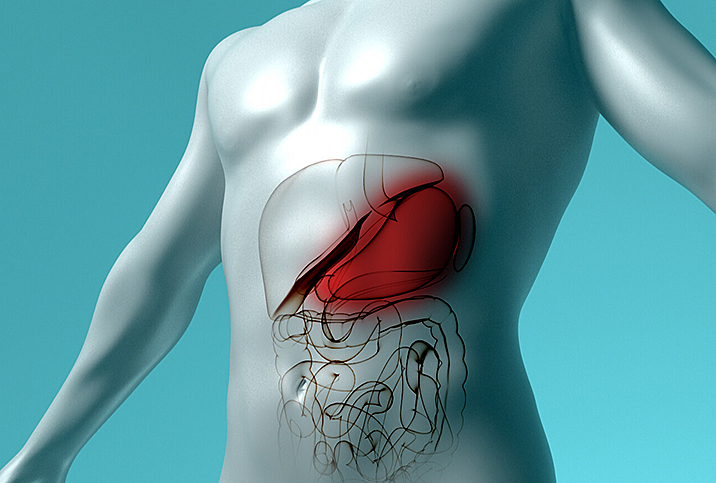How Poor Gut Health Affects Sexual Health

Approximately 60 million to 70 million Americans experience poor gut health and digestive diseases that affect the stomach’s gastrointestinal tract and microbiome. Gastroesophageal reflux disease (GERD) and inflammatory bowel disease (IBD) are two of the most prevalent digestive disorders, often producing symptoms that include heartburn, bloating, irritability, indigestion, diarrhea or constipation, and abdominal pain.
In addition to gastrointestinal symptoms, studies show high rates of sexual dysfunction, including ED, among people with gut issues.
The connection to sexual health
Gut health typically refers to your entire digestive tract, from your esophagus to your rectum. But your gut is often called your “second brain,” and with good reason.
While your digestive tract primarily digests food and absorbs nutrients, it’s also a microbiome for bacteria, also called gut flora. These bacteria produce around 90 percent of the serotonin in your body. Serotonin is an essential neurotransmitter responsible for sensations of pleasure, and it plays a vital role in your sex drive.
When something goes wrong with your digestive health, that can disrupt serotonin production and, in turn, wreak havoc on proper sexual function.
GERD’s impact on sex
GERD is a common chronic digestive disorder that causes stomach acid or acidic stomach contents to come back into the esophagus. This is known as acid reflux.
Your lower esophageal sphincter (LES) is a circular tube of muscle between your esophagus and stomach. When you swallow, the LES relaxes and creates an opening so food and liquid can enter your stomach. Once food is in your stomach, the LES contracts and the opening closes. When the LES doesn’t completely close, stomach acid and content can flow back up into the esophagus.
GERD symptoms, such as heartburn, chest pain and trouble swallowing, are uncomfortable and may cause you to stop having sex altogether. However, learning what sets off GERD can help you avoid its symptoms and maintain a satisfying sex life.
GERD: Before, during, after sex
Sexual intercourse is a physical activity and can trigger GERD symptoms. To avoid heartburn, acid reflux and shortness of breath during sex, try some simple measures.
Before sex, avoid consuming greasy foods or sugary drinks that may trigger symptoms. Instead, eat lighter foods and wait for them to digest. If symptoms persist, take an antacid and, to prevent long-term issues, see a healthcare professional.
During sex, communicate with your partner about how you’re feeling. Avoid positions where you have to lie flat or put pressure on your stomach, as these can worsen symptoms. Instead, try to remain sitting or standing upright. If you suspect a flare-up is about to begin, stop having sex and reassess how you’re doing. Continued sexual activity can sometimes worsen symptoms.
After sex, again evaluate how you’re feeling. If you experience GERD symptoms, make note of what foods, drinks and medications you had beforehand. Once you recognize your triggers, you can better avoid them in the future.
If self-management isn’t helping your GERD, talk to a doctor, who may prescribe antihistamines or prescription-strength acid reflux medications.
IBD’s influence on sex
Inflammatory bowel disease is another common digestive-tract disorder that affects approximately 3 million Americans, according to the Centers for Disease Control and Prevention (CDC). It is typically diagnosed in one of two forms:
- Crohn’s disease creates inflammation in your digestive tract, leading to abdominal pain, severe diarrhea, excess gas, fatigue, weight loss and malnutrition. Inflammation from Crohn's can spread to other nearby tissue.
- Ulcerative colitis causes sores (ulcers) in the lining of the large intestine (or colon), which then results in constipation, irritation and inflammation.
Symptoms from either form of IBD can be painful and decrease your quality of life. However, you still can have a satisfying sex life despite this condition. When you uncover what triggers your IBD, you can help avoid its symptoms before sex.
Preventing IBD flares
Certain lifestyle choices and practices may reduce the prevalence of IBD flare-ups, and therefore improve your libido and sex life. The following suggestions have proven effective with IBD sufferers:
- Avoid foods, such as fresh fruits and vegetables, prunes and caffeinated beverages, that may increase or speed up stool output.
- Drink less alcohol.
- Make sure you’re getting a significant amount of omega-3 fatty acids in your diet by eating plenty of fish, nuts and/or plant oils. These fats may have an anti-inflammatory effect.
- Eat more frequent yet smaller meals. This pattern can increase your daily nutrition and energy.
- Take nutritional supplements if you have a poor appetite. Try liquid supplements if your body does not tolerate solid foods well.
- Combat lactose intolerance, which produces gas, bloating, cramping and diarrhea, with a lactose-free diet.
- Reduce concentrated sweets, such as juice, candy and soda, to help decrease the amount of water pulled into your intestine, which can cause watery stools.
Be sure to express your feelings to your partner as clearly as possible, especially to assure them that they’re not to blame. You can come up with a workaround solution together and, if you need to delay sex, you still can get intimate in other ways.
If conditions worsen, talk to a specialist, who may want to run an endoscopic procedure—including a colonoscopy, upper endoscopy, sigmoidoscopy and capsule endoscopy—for a better diagnosis.


















